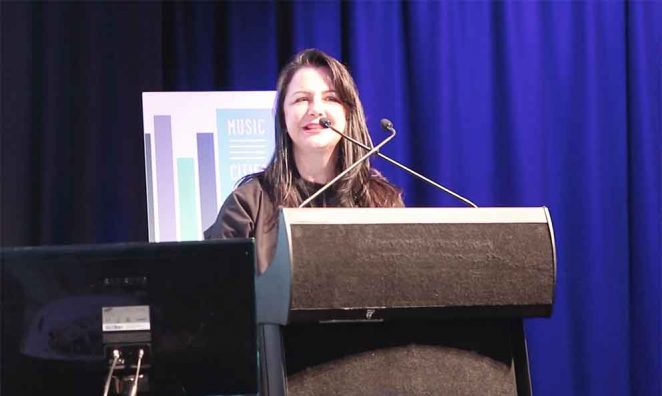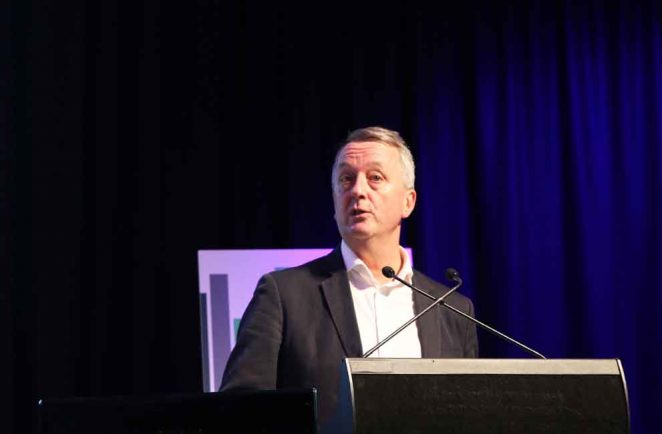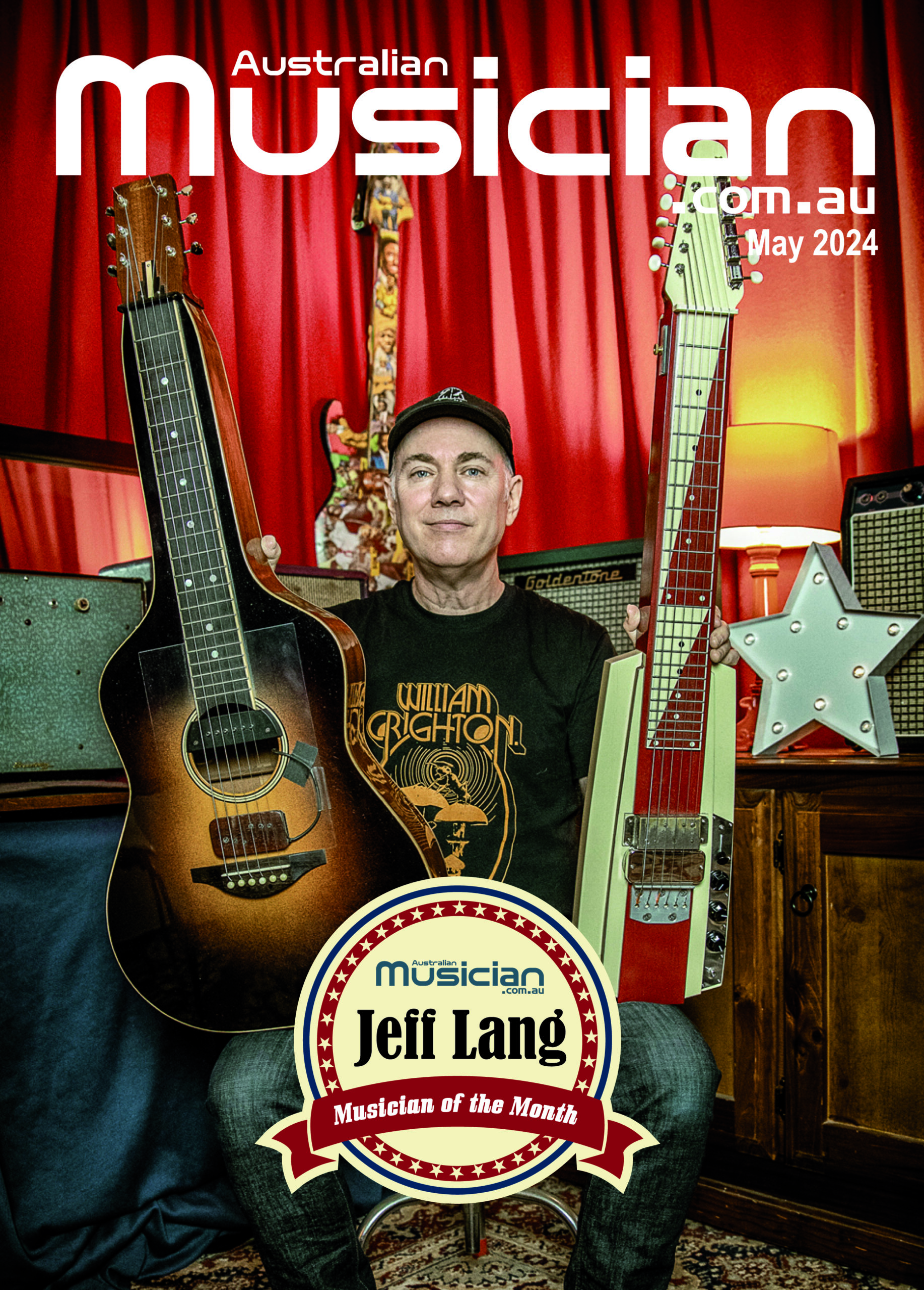
The results of a survey released last week showed that Melbourne’s music scene is so healthy that many declared the southern city the world’s music capital! It’s befitting that this week Melbourne hosted the Music Cities Convention, a talk-fest, think-tank which explores how music enhances economic development, creates jobs and drives tourism, and helps to build leading global cities. Yesterday, around 300 attendees ranging from town planners and academics to musicians and arts industry personnel convened at Melbourne’s Arts Centre for the first day of a two day event, to hear over 40 speakers from all corners of the globe discuss what makes a great music city.
Australian Musician’s Greg Phillips went along to see what the convention was all about.
When talking about factors that helped make modern-day Melbourne’s music scene so great, you can’t go past the SLAM (Save Live Australia’s Music) rally which took place in 2010 as an example of the level of passion Melbournians hold for their music. As a protest against the effects of liquor licensing laws on live venues, around 20,000 people took to the CBD in protest. Aware of the groundswell of public disapproval of the laws, the state government backed down on the morning of the protest but the triumphant march went head anyway. It was apt that the first speaker at the Music Cities Convention was Bakehouse Studios’ Helen Marcou, who along with her husband Quincy McLean was at the coalface of the SLAM movement. One of major things which Helen learned from the SLAM experience was that “if you’re going to pick a fight with the government, you’d better have an evidence based solution”.
Quite an academic discussion followed, looking at the impact of cultural policy on music city policies. To the average punter the topic may seem a little dull but the discussion, featuring representatives from Jamaica, Canada and Australia was fascinating. Will Straw of the University of Montreal pointed out that typically white guys in funky clubs are used to portray the vibrancy of a music city and that perhaps this is a little old hat. He suggested that a rich music scene is based on many cultural, economic and social aspects and should not be defined just by a hip white male rock band in a cool club.
 In accepting an invitation to cover this event, I wasn’t entirely sure what I’d be experiencing. I certainly didn’t expect to find myself involved in a hands-on, round table discussion on how to start a music policy for a mid-sized city from scratch and how to convince government that our policy was needed. As you’ll see from the photo of our butcher-paper notes, the key factors our group honed in on were the social economic and cultural benefits of music and thinking back to Helen’s presentation, the need to supply evidence based information to back up our claims. Our table, made up mainly of university researchers and moderated by Bree Trevena, an urban strategist and planning manager, demonstrated to me just how much discussion and planning goes into getting things done on a government level.
In accepting an invitation to cover this event, I wasn’t entirely sure what I’d be experiencing. I certainly didn’t expect to find myself involved in a hands-on, round table discussion on how to start a music policy for a mid-sized city from scratch and how to convince government that our policy was needed. As you’ll see from the photo of our butcher-paper notes, the key factors our group honed in on were the social economic and cultural benefits of music and thinking back to Helen’s presentation, the need to supply evidence based information to back up our claims. Our table, made up mainly of university researchers and moderated by Bree Trevena, an urban strategist and planning manager, demonstrated to me just how much discussion and planning goes into getting things done on a government level.
It wouldn’t be a music conference without music and we were very fortunate to be entertained by key note speaker Archie Roach, who spoke of his love for Melbourne and melted our hearts with a couple of his legendary tunes, ’Took The Children Away’ and ‘Charcoal Lane’. Standing ovations greeted and farewelled the iconic indigenous artist.
Melbourne has always enjoyed a healthy music scene and we sometimes take that for granted. To put things into perspective, Farai Monro described some of the incredible hurdles he has to overcome in presenting music festivals in his hometown of Harare, Zimbabwe, once described as having the world’s worst economy. At one point, the economy was so glum, it resulted in the need to print trillion dollar notes… and even more unbelievably leading to million dollar beers!
Gary Zheng then provided incredible contrast as, via an interpreter, he outlined plans by the Chinese city of Chengdu to build a ‘fun district’, an area covering 3 massive city blocks that would become a dream location for international music fans and musicians. Zheng also stated that the Chinese music industry is worth 325 billion RMB!
To follow and then into day 2 were presentations from representatives of Fort Collins in Colorado, Bogota in Colombia, Orlando in Florida, Amsterdam in The Netherlands, Beijing, China, Fukuoka, Japan and much more.
Next time you’re heading out to enjoy some music in Melbourne, take a minute to be thankful for the amazing choice available in terms of talent and venues and also know that there’s a lot of hard work going on in the background to keep Melbourne’s music scene as robust into the future.
Music Cities Convention was presented by Sound Diplomacy, Creative Victoria and Music Victoria.
www.musiccitiesconvention.com








